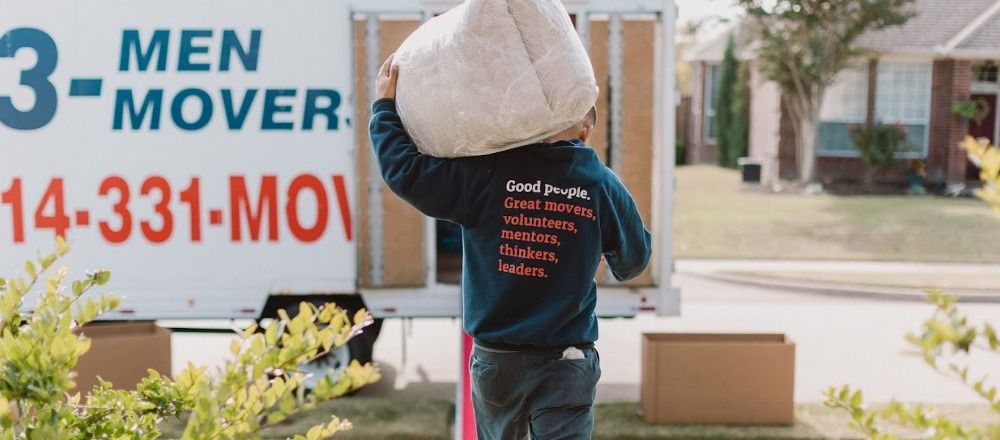

Why Do People Move?
The average person moves several times in their lifetime, but the real question is why do they? Several factors influence relocation decisions, including housing costs, lifestyle preferences, family needs, the pursuit of higher education, and job opportunities.
-
People choose to for a number of reasons, such as pursuing higher education, seeking a new job, or moving to a more appealing climate, reflecting different life stages and priorities.
-
Understanding relocation patterns is essential for individuals, families, and communities to adapt to changing needs and circumstances.
-
The decision to move involves weighing various factors, including one's financial situation, commute times, and access to amenities such as parks and schools.
-
Relocation trends, as reported by the Census Bureau, provide insights into the motivations and behaviors of people moving to new locations.
Top Reasons Why People Move
While there is typically more than one reason why people move, the top reasons are often career-related, family-centered, lifestyle-focused, or driven by financial or real estate conditions. There are many reasons why people choose new homes in different areas, and the motivations vary for each person. The Census Bureau has reported that, while the percentage of Americans moving has been declining, with the 2022 rate being the lowest in decades, there are shifting relocation patterns from cities to rural areas for several reasons.
Career-Related Moves
Many of us associate our careers with personal value, our ability to provide for our families, and a sense of belonging. As a result, pulling up roots for new job opportunities has become a high-ranking decision factor, if not a necessity.
New Job and Career Advancement
-
A new job or job transfer is a common reason for relocation, with many people seeking career opportunities in urban areas or rising suburbs.
-
Career advancement and professional growth are significant factors in relocation decisions, often involving a trade-off between lifestyle and financial considerations.
Remote Work Evolution
-
Since the COVID-19 pandemic, increases in remote work opportunities have increased flexibility, allowing people to move to a new home in a different neighborhood or city while maintaining their current employment.
-
Time spent commuting has become a deciding factor, as drive time is now often spent working, allowing for more flexibility and time for improving family and recreational activities.
-
Many people who focus heavily on improving their lifestyles are choosing to relocate to a new city or country that better suits their needs and wants.
Emerging Economic Hubs
-
Changes in geographic job centers and growth can impact relocation decisions.
-
The impact of relocation on career development and job satisfaction is a crucial aspect of the moving process.
Personal Factors
While job satisfaction and advancement potential are increasingly important, many other personal factors influence decisions to move, including happiness (such as getting married or having kids). Some are driven by necessity (e.g., aging parents or divorce).
Change in Marital Status
-
Personal factors, such as marital status, family, and friends, play a significant role in relocation decisions, with many people moving to be closer to loved ones, getting divorced and co-parenting, or starting a new family.
Growing Family
-
Growing families often require more space, leading to the need for relocation to larger homes with backyards or to different neighborhoods with better schools.
Aging Parents
-
Aging parents may also influence relocation decisions, as adult children seek to care for their parents or be closer to them. Many children are buying homes with the intent of their parents living with them.
Other personal Factors
-
Some individuals may relocate to escape the summer heat or seek a more appealing climate, underscoring the importance of environmental factors in career-related decisions.
-
Changing lifestyle preferences, such as seeking better neighborhoods, entertainment opportunities, outdoor activities, or lower crime rates, are essential considerations in personal relocation decisions.
-
Living in downtown areas of cities changes as life events dictate. Lifestyles change and present unique opportunities to make changes.
-
The political environment and how individual values align have become increasingly a deciding factor in deciding whether to move to a different city, state, or country.
Financial Considerations
A hot topic currently is the rising costs and shifts in job availability, leaving people with no choice but to relocate to control both the cost of living and maintain gainful employment by moving to different cities or states.
Job Availability
-
For those who cannot work remotely (and many employers are shifting to a more hybrid model), living closer to available jobs becomes increasingly essential. As different states and counties offer tax incentives to relocate offices and manufacturing facilities, people often make this aspect a key deciding factor.
Housing Costs
-
Costs associated with buying a home is a critical factor in decisions to move, with home prices, closing costs, and other expenses influencing the choice of a new location.
Reducing Financial Pressures
-
Interest rates, personal living situations, and overall cost of living are also major financial factors in relocation decisions.
-
Many people relocate to reduce their financial burden, looking for more affordable housing or lower living costs.
-
The financial implications of losing employment or underemployment are leading to transitions from homeownership to apartment living.
Real Estate Market Trends
A rise in interest rates, the scarcity of affordable resale homes, and home developers building homes in areas where land is cheaper are all driving people to consider how and where to relocate. Whether it's taking advantage of existing home equity to scale up or reduce house payments or finding a more affordable means of getting into their first house, market trends are dictating the next move.
Home Equity Considerations
-
Home equity can be a significant factor, as people may relocate to buy a new home or invest in a different property.
Remote Work Shifts from Urban Centers
-
Densely populated areas, city centers, and suburban neighborhoods may experience distinct market trends, which can influence the choice of location.
-
Remote workers and their families may prioritize different factors, such as commute times or access to schools when evaluating real estate options.
-
Remote work has created a need for more space in the home to accommodate home offices within the total living space.
Housing Market Conditions
-
Many changes in real estate market trends, such as changes in housing prices and availability, can significantly impact relocation decisions.
-
Interest rates on mortgages before 2022 were substantially lower, impacting a person's ability to afford monthly payments, as well as impacting the supply of resale homes. Many people are choosing to stay put at a lower interest rate.
-
The desire for more space, a better neighborhood, or a specific type of property can drive relocation decisions, reflecting broader trends in the real estate market.
The Moving Process
The moving process can be complex, involving multiple factors like housing costs, commute times, and access to amenities. The moving process involves several stages, including planning, packing, and transporting belongings to a new location. Understanding the moving process can help individuals, families, and communities navigate the challenges of relocation and budgeting for an upcoming move.
The decision to relocate for personal reasons involves weighing the pros and cons of different locations and communities, so do your research to find your "why" about choosing to move and lean on resources, whether it be Google, family, or friends, to help with the decision-making process.
And while movers can't help with these decisions, we can assist with executing the move itself. Seek the help of a professional mover to simplify the relocation process, including temporary storage, packing assistance, and facilitating a successful move.
So, if and when you're ready to move, contact 3 Men Movers. It will be the easiest decision in the whole process.